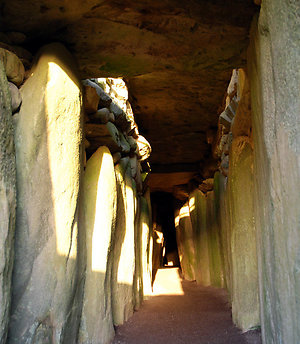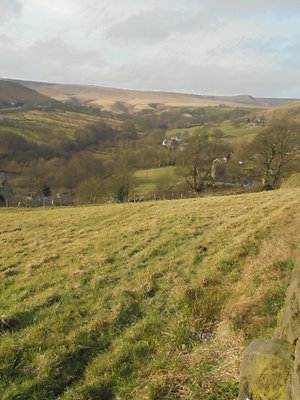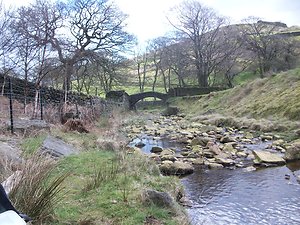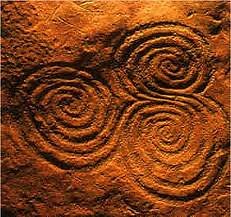Working in the outdoors
How do we continue to live in this fast changing world where climate change has become the norm, where vast areas of the planet are becoming uninhabitable, where wildlife is being decimated? How does life on this planet survive never mind thrive? And when I speak of life I mean all life, all species both animate and inanimate, human and other-than-human. If other aspects of our ecosystems don't survive we humans won't survive either. We can't survive without plants, without fruit, without bees or worms. In reality we are as closely bound to the natural world as are all these species.
So, when I work in the outdoors my thoughts are not only on the person I'm working with but also the natural world that we find ourselves in. How can we work together to the benefit of all. Is it possible to help heal a human being and at the same time forget about the rest of life on earth? I don't think so. Healing must take place at all levels, including the part of us that is wild, that is nature. So, in psychotherapy or supervision I'm interested in supporting the connection within the human, between the human and human, and between the human and the natural world. When we connect with the part of ourselves that is nature we want to support all life as we feel the intrinsic connection between ourselves and all that exists.
So, when working outdoors I invite you to re-adjust to the ultimate context within which we all live, that is, the natural world. We are all children of nature and every breath we take is a reminder of this deepest of connections. In my daily life including my work as a supervisor and psychotherapist I typically feel more alive and present in the outdoors as this is where I feel most at home. Nature is part of who I am and I am part of nature
In outdoor therapy and supervision I support you in focusing on your relationship with the natural world as well as with yourself – through your breathing, movement, or bodily gestures or through what you might be drawn to whilst in the outdoors. So, we explore both how the natural world can be a source of support to you and how you can be a source of support to the natural world of which you are part.
As John Muir said:
“I only went out for a walk and finally concluded to stay out
till sundown, for going out, I found, was really going in”
So, by going into the outdoors I am inviting you to go in, to go in to yourself, however that may be.
Working in the outdoors provides an ideal opportunity to explore how you feel about climate change and how you feel about the human impact on life on earth. I will help you explore the therapeutic needs that emerge when you hold the reality of climate crisis in authentic awareness. As we have seen in recent times our young people are directly expressing their anxiety and fear for their future and the future of our planet, and if we needed concrete evidence of how precarious life on the earth is, we need look no further than the COVID-19 pandemic and the widespread death and illness it has caused. Part of connecting with nature is connecting with death. The Pagans believed we are in a constant cycle of birth, growth, death, decay and re-birth. So, in order to face life we also have to face death, and not only our own inevitable death but maybe even the death of our species and many other species on the planet. This is the reality that we are facing in these turbulent times.
When working outdoors I work in a location that suits both those on public transport and those who drive. We can stay in local woodland or head out on to the rugged open spaces of the moors near Marsden.
I work with clients for an hour, or for longer by negotiation. The therapy can take the form of walking and talking or we might slow right down and focus on your emotional and bodily response to the issues you bring to therapy and how the environment we are in can add to your process. Flexibility is the order of the day here depending upon client preference and weather conditions.
All the traditional boundaries for effective and safe psychotherapy and supervision still apply, including a mutually agreed focus for our work and agreements regarding confidentiality. We may occasionally meet other people when working outside and we will agree on how to deal with this scenario.
You don’t need to be physically fit to work outdoors as the focus is on your relationship with the earth as you work on those issues that bring you to therapy or supervision – it is not about fitness, but it is about slowing down enough to be in relationship with both yourself and the earth around and beneath you and seeing how this deeper connection facilitates personal and interpersonal change or, in terms of supervision, how the natural world helps sustain you in your work.
“If we surrendered to earth's intelligence we could rise up rooted, like trees. ”
― Rainer Maria Rilke
My interest in the outdoors
Since being a child I always felt at home in nature. It felt a safer place to be in many ways than in my home so I spent many hours in the outdoors. As I was brought up on a farm I was surrounded by green fields and meadows, lakes, streams, hedge rows, farm animals, birds, insects. I had access to so much space and had hours in which to roam these spaces.
However, as I grew up my connection with nature faded. I moved to mainland UK and lived in Greater Manchester for many years with its limited natural spaces. For a long time nature just wasn’t on my radar. I worked as a counsellor for many years and spent most of my time indoors moving between office, car, train and home.
However, I slowly began to feel the loss of that connection with nature again and I started to spend more time in the outdoor world. This was made easier in more recent years as I lived in Saddleworth and then Marsden in West Yorkshire, both on the open moors. If felt like home and I slowly deepened this connection, spending lots of slow time in nature and becoming more aware of how I am simply part of the natural world, part of the natural cycle of birth, growth, death, decay and re-birth. This revitalised connection with nature has played a significant part in my healing journey over the past number of years with the result that I realised I needed to offer this same option to clients and supervisees, many of whom also feel that deep connection with nature.
I now also run a range of mainly weekend workshops and closed groups focusing on both our connection with the natural world and mortality. More details of these events can be found on the workshops page of this website.
On death and dying
“…when its over I want to say I was a bride married to amazement,
I was the bridegroom taking the world into my arms…” (Oliver, 1992: 10-11)
In our society if we acknowledge death at all we typically see it as the enemy. We try to keep it at arm’s length and refuse to acknowledge that it will happen to us all. Of course, one of the consequences is that those who do think about death are stuck with those thoughts because they don’t feel able to speak to others about them. Or if they do pluck up the courage to speak about it others just close down or quickly change the conversation. It’s a no go area.
In my work as a psychotherapist I find a lot of people want to talk about death. For some it is a thought that they have from time to time; for others it is an incessant torrent of thoughts that never leaves them. Most people fear death; many are unable to contemplate this world without them being part of it; many fear the process of dying, worrying about whether it will be a sudden end without time to say goodbye to their loved ones whilst others worry about a long, drawn out and painful end to their life; still others worry about what happens after we die – is there some on-going existence or is it the end?
My experience is that many have a real need to talk about death because it's the one thing in life that we are sure of. We will all die. And when we do talk about death we find a way to come to terms with it; the anxiety eases.
Life and death are also an intrinsic part of the evolutionary cycle that has perpetuated life over the aeons. This is why, when working with clients on death, I prefer to work in the outdoors. In nature, life and death are ever-present. Nothing stays static. We have the wonderful vibrancy of spring followed by the warmth and growth of summer and nature bearing fruit in autumn before the fallow period of winter when things die off. Our human lives follow the same cycle so nature can be our teacher in managing the ever-changing nature of life, and ultimately, death.



